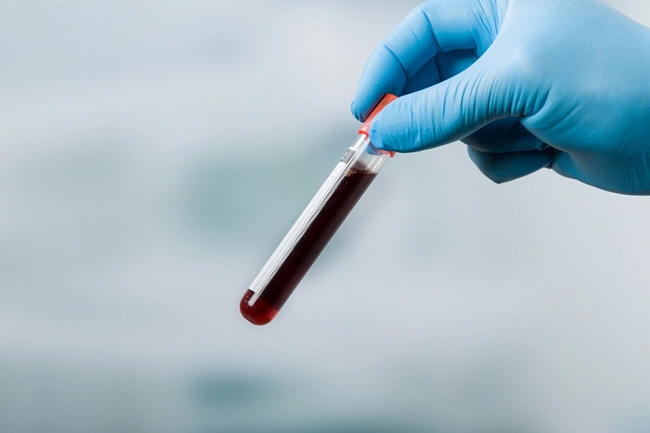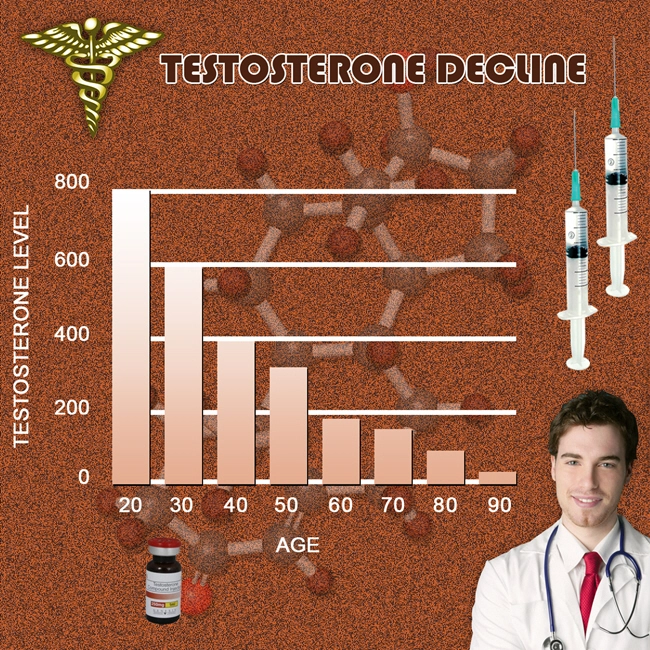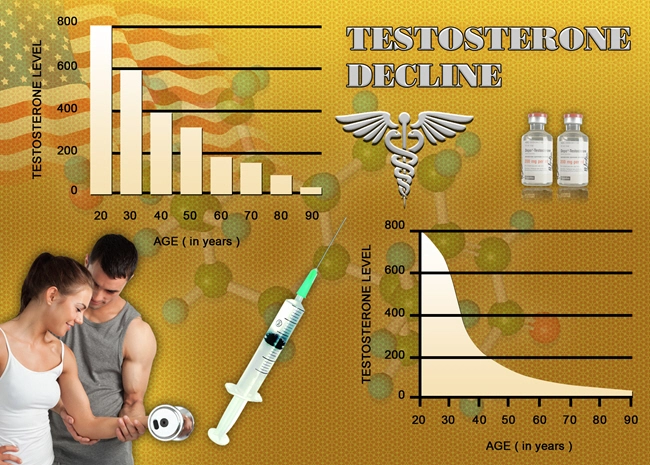
Introduction to Depo Testosterone
Depo Testosterone, a brand name for testosterone cypionate manufactured by Pfizer, is a widely used injectable form of testosterone replacement therapy (TRT). It is primarily prescribed to treat conditions associated with low testosterone levels, such as hypogonadism. While effective in addressing these concerns, one of the potential side effects that American men may encounter is hair loss.
The Mechanism of Testosterone and Hair Loss
Testosterone is a crucial hormone that plays a significant role in various bodily functions, including the regulation of hair growth. However, it is the conversion of testosterone to dihydrotestosterone (DHT) by the enzyme 5-alpha-reductase that is often linked to hair loss. DHT can shrink hair follicles, leading to a condition known as androgenetic alopecia, or male pattern baldness. Depo Testosterone, by increasing overall testosterone levels, may inadvertently increase the production of DHT, thereby potentially exacerbating hair loss in susceptible individuals.
Clinical Observations and Studies
Clinical studies and anecdotal evidence suggest a correlation between testosterone replacement therapy and hair loss. A study published in the Journal of Clinical Endocrinology & Metabolism found that men undergoing TRT experienced a higher incidence of hair loss compared to those not receiving treatment. However, it is important to note that not all men on Depo Testosterone will experience hair loss, as genetic predisposition plays a significant role in determining susceptibility.
Managing Hair Loss While on Depo Testosterone
For American men concerned about hair loss while using Depo Testosterone, several strategies can be employed to mitigate this side effect. Firstly, consulting with a healthcare provider is essential. They may recommend medications such as finasteride, which inhibits the conversion of testosterone to DHT, thereby potentially reducing hair loss. Additionally, minoxidil, a topical treatment, can be used to stimulate hair growth.
Alternative Therapies and Considerations
In some cases, alternative forms of testosterone replacement therapy may be considered. For instance, testosterone gels or patches might be less likely to cause hair loss compared to injectable forms like Depo Testosterone. It is crucial for patients to discuss these options with their healthcare providers to determine the most suitable treatment plan.
Lifestyle and Nutritional Factors
Beyond medical interventions, lifestyle and nutritional factors can also play a role in managing hair health. A balanced diet rich in vitamins and minerals, such as zinc and biotin, can support hair growth. Regular exercise and stress management techniques can also contribute to overall well-being, which indirectly affects hair health.
Conclusion: Balancing Benefits and Risks
Depo Testosterone is an effective treatment for men with low testosterone levels, offering significant improvements in energy, mood, and sexual function. However, the potential for hair loss remains a concern for many American men. By understanding the mechanisms behind testosterone-induced hair loss and exploring various management strategies, men can make informed decisions about their treatment options. It is essential to work closely with healthcare providers to monitor the effects of Depo Testosterone and adjust treatment plans as necessary to achieve the best possible outcomes.
In summary, while Depo Testosterone can be a valuable tool in managing low testosterone, it is important for American men to be aware of the potential for hair loss and to take proactive steps to address this side effect. With the right approach, it is possible to balance the benefits of testosterone replacement therapy with the management of its potential risks.
Contact Us Today For A Free Consultation
Dear Patient,
Once you have completing the above contact form, for security purposes and confirmation, please confirm your information by calling us.
Please call now: 1-800-380-5339.
Welcoming You To Our Clinic, Professor Tom Henderson.

- Depo Testosterone: Enhancing Sexual Health in American Men with Pfizer's Hormone Therapy [Last Updated On: March 16th, 2025] [Originally Added On: March 16th, 2025]
- American Men's Experiences with Pfizer's Depo Testosterone Therapy: Benefits and Challenges [Last Updated On: March 17th, 2025] [Originally Added On: March 17th, 2025]
- Depo Testosterone Therapy: Tailoring Treatment for American Males with Hypogonadism [Last Updated On: March 17th, 2025] [Originally Added On: March 17th, 2025]
- Depo Testosterone: Enhancing Men's Health with Pfizer's Injectable Hormone Therapy [Last Updated On: March 17th, 2025] [Originally Added On: March 17th, 2025]
- Depo Testosterone: Efficacy, Safety, and Patient Satisfaction in American Males with Hypogonadism [Last Updated On: March 18th, 2025] [Originally Added On: March 18th, 2025]
- Depo Testosterone: Challenges and Solutions for American Men's Access to TRT [Last Updated On: March 18th, 2025] [Originally Added On: March 18th, 2025]
- Depo Testosterone: Psychological Impacts and Management in American Men [Last Updated On: March 18th, 2025] [Originally Added On: March 18th, 2025]
- Depo Testosterone: Benefits, Risks, and Management for American Males [Last Updated On: March 20th, 2025] [Originally Added On: March 20th, 2025]
- Depo Testosterone Therapy: Innovations and Future in American Male Healthcare [Last Updated On: March 21st, 2025] [Originally Added On: March 21st, 2025]
- Depo Testosterone: Managing Chronic Conditions in American Men with Low Testosterone [Last Updated On: March 21st, 2025] [Originally Added On: March 21st, 2025]
- Depo Testosterone: Managing Delayed Puberty in American Males [Last Updated On: March 22nd, 2025] [Originally Added On: March 22nd, 2025]
- Depo-Testosterone's Impact on Weight Management in American Males: Clinical Insights [Last Updated On: March 22nd, 2025] [Originally Added On: March 22nd, 2025]
- Depo Testosterone: Enhancing Energy and Vitality in American Men [Last Updated On: March 22nd, 2025] [Originally Added On: March 22nd, 2025]
- Depo-Testosterone: Benefits and Risks for Older American Men's Health [Last Updated On: March 22nd, 2025] [Originally Added On: March 22nd, 2025]
- Depo Testosterone: Benefits and Considerations for Transgender American Males [Last Updated On: March 22nd, 2025] [Originally Added On: March 22nd, 2025]
- Depo Testosterone: Enhancing Cognitive Function in American Males [Last Updated On: March 23rd, 2025] [Originally Added On: March 23rd, 2025]
- Depo Testosterone: Impacts on Sleep and Management Strategies for American Men [Last Updated On: March 23rd, 2025] [Originally Added On: March 23rd, 2025]
- Depo Testosterone: Benefits, Risks, and Prostate Health Considerations [Last Updated On: March 23rd, 2025] [Originally Added On: March 23rd, 2025]
- Depo Testosterone: Effects on Male Fertility and Preservation Strategies [Last Updated On: March 23rd, 2025] [Originally Added On: March 23rd, 2025]
- Depo Testosterone's Impact on Joint Health in American Males: Benefits and Risks [Last Updated On: March 24th, 2025] [Originally Added On: March 24th, 2025]
- Depo Testosterone: Enhancing Mood and Well-being in American Males with Low Testosterone [Last Updated On: March 24th, 2025] [Originally Added On: March 24th, 2025]
- Depo Testosterone: Managing Adolescent Hypogonadism with Informed Care and Monitoring [Last Updated On: March 24th, 2025] [Originally Added On: March 24th, 2025]
- Depo Testosterone: Benefits, Risks, and Legal Issues for American Male Athletes [Last Updated On: March 24th, 2025] [Originally Added On: March 24th, 2025]
- Depo Testosterone: Usage, Dosage Adjustment, and Monitoring for Optimal Health [Last Updated On: March 25th, 2025] [Originally Added On: March 25th, 2025]
- Depo Testosterone: Effects on Blood Sugar Levels in American Males [Last Updated On: March 25th, 2025] [Originally Added On: March 25th, 2025]
- Depo Testosterone: Enhancing Endurance in American Male Athletes - Benefits and Risks [Last Updated On: March 25th, 2025] [Originally Added On: March 25th, 2025]
- Navigating Insurance Coverage for Depo Testosterone: A Guide for American Men [Last Updated On: March 25th, 2025] [Originally Added On: March 25th, 2025]
- Depo Testosterone: Effects on Skin Health and Management Strategies for American Men [Last Updated On: March 26th, 2025] [Originally Added On: March 26th, 2025]
- Depo Testosterone: Benefits for Hypogonadism and Liver Health Considerations [Last Updated On: March 26th, 2025] [Originally Added On: March 26th, 2025]
- Depo Testosterone: Enhancing Performance and Health in American Male Weightlifters [Last Updated On: March 26th, 2025] [Originally Added On: March 26th, 2025]
- Depo Testosterone: Cardiovascular Risks and Benefits in American Men [Last Updated On: March 26th, 2025] [Originally Added On: March 26th, 2025]
- Depo Testosterone by Pfizer: Enhancing Male Libido and Sexual Function through TRT [Last Updated On: March 26th, 2025] [Originally Added On: March 26th, 2025]
- Depo Testosterone: Impacts on Body Composition and Health in American Males [Last Updated On: March 26th, 2025] [Originally Added On: March 26th, 2025]
- Depo Testosterone: Enhancing Sexual Health in American Men with Low Testosterone [Last Updated On: March 26th, 2025] [Originally Added On: March 26th, 2025]
- Depo Testosterone: Managing Testosterone Deficiency in American Men with Pfizer's HRT [Last Updated On: March 26th, 2025] [Originally Added On: March 26th, 2025]
- Depo Testosterone: Enhancing Veterans' Health and Well-being with Pfizer's Treatment [Last Updated On: March 27th, 2025] [Originally Added On: March 27th, 2025]
- Depo Testosterone: A Guide for American Males Treating Infertility [Last Updated On: March 27th, 2025] [Originally Added On: March 27th, 2025]
- Depo Testosterone: Effects on Immune System and TRT Considerations for American Males [Last Updated On: March 27th, 2025] [Originally Added On: March 27th, 2025]
- Depo Testosterone's Impact on Respiratory Health in American Males: A Review [Last Updated On: March 27th, 2025] [Originally Added On: March 27th, 2025]
- Depo Testosterone: Enhancing Life for American Male Cancer Survivors [Last Updated On: March 27th, 2025] [Originally Added On: March 27th, 2025]
- Depo Testosterone: A Potential Solution for Stress Management in American Males [Last Updated On: March 27th, 2025] [Originally Added On: March 27th, 2025]
- Depo Testosterone: A Promising Treatment for Depression in American Males [Last Updated On: March 27th, 2025] [Originally Added On: March 27th, 2025]
- Depo Testosterone: Enhancing Anemia Treatment in American Men with Low Testosterone [Last Updated On: March 28th, 2025] [Originally Added On: March 28th, 2025]
- Depo Testosterone: Enhancing Life Quality for American Males with HIV/AIDS [Last Updated On: March 28th, 2025] [Originally Added On: March 28th, 2025]
- Depo Testosterone's Impact on Gastrointestinal Health in American Males [Last Updated On: March 28th, 2025] [Originally Added On: March 28th, 2025]
- Depo Testosterone: Managing Osteoporosis in American Males - Benefits and Considerations [Last Updated On: March 28th, 2025] [Originally Added On: March 28th, 2025]
- Depo Testosterone: Treating Chronic Fatigue Syndrome in American Males [Last Updated On: March 28th, 2025] [Originally Added On: March 28th, 2025]
- Depo Testosterone's Impact on Kidney Function in American Males: Safety and Monitoring [Last Updated On: March 29th, 2025] [Originally Added On: March 29th, 2025]
- Depo Testosterone: Benefits and Eye Health Risks in American Males [Last Updated On: March 29th, 2025] [Originally Added On: March 29th, 2025]
- Depo Testosterone: Managing Diabetes in American Males - Benefits and Research Insights [Last Updated On: March 31st, 2025] [Originally Added On: March 31st, 2025]









